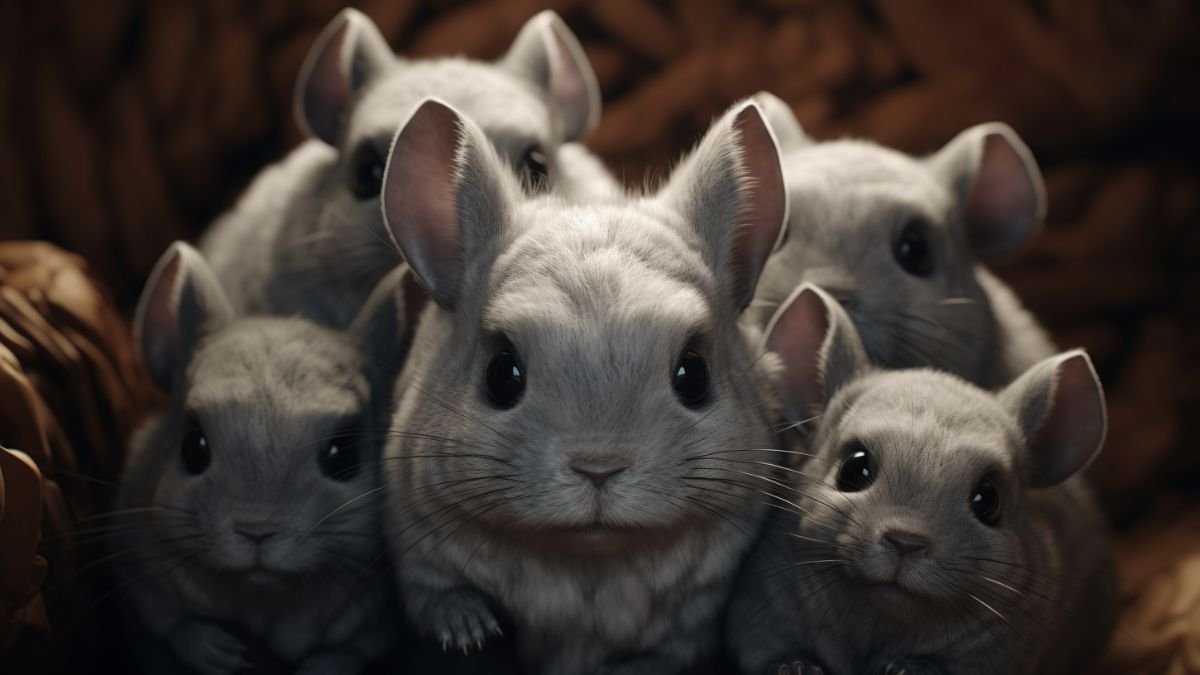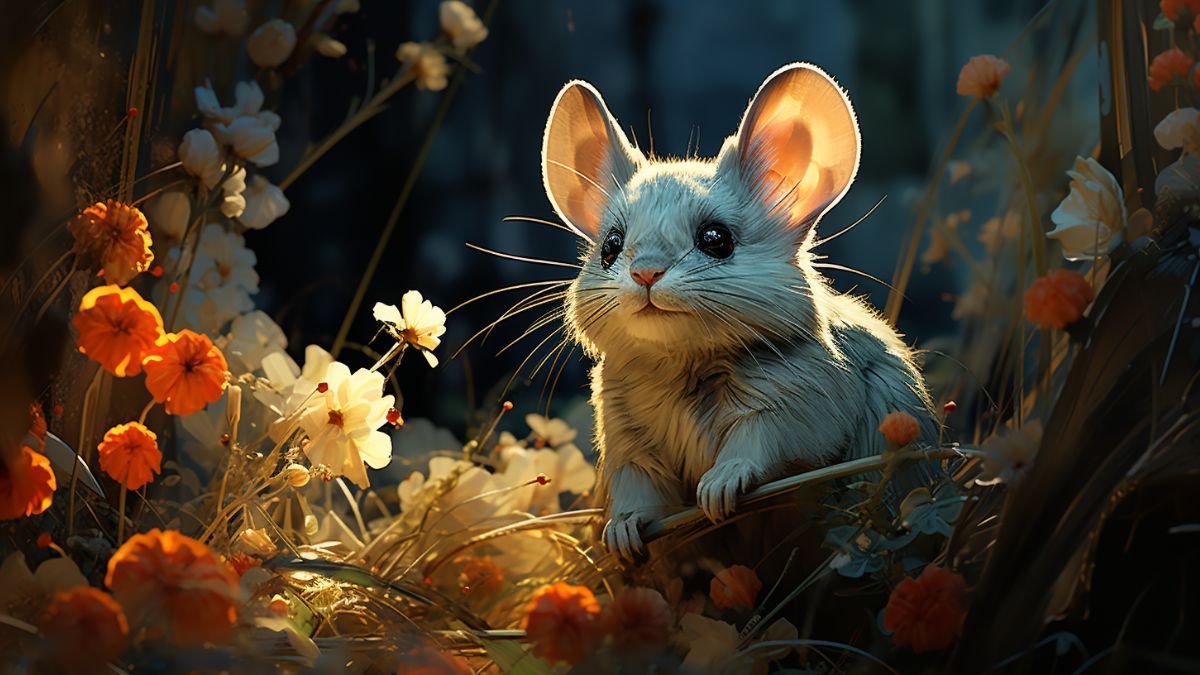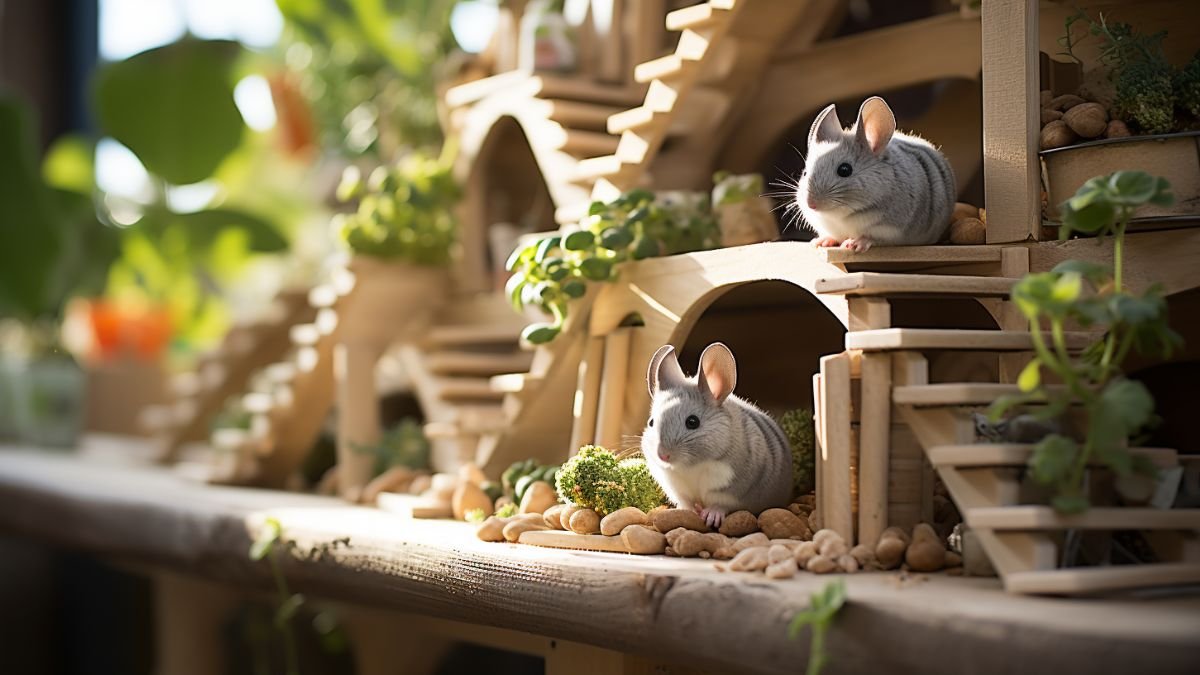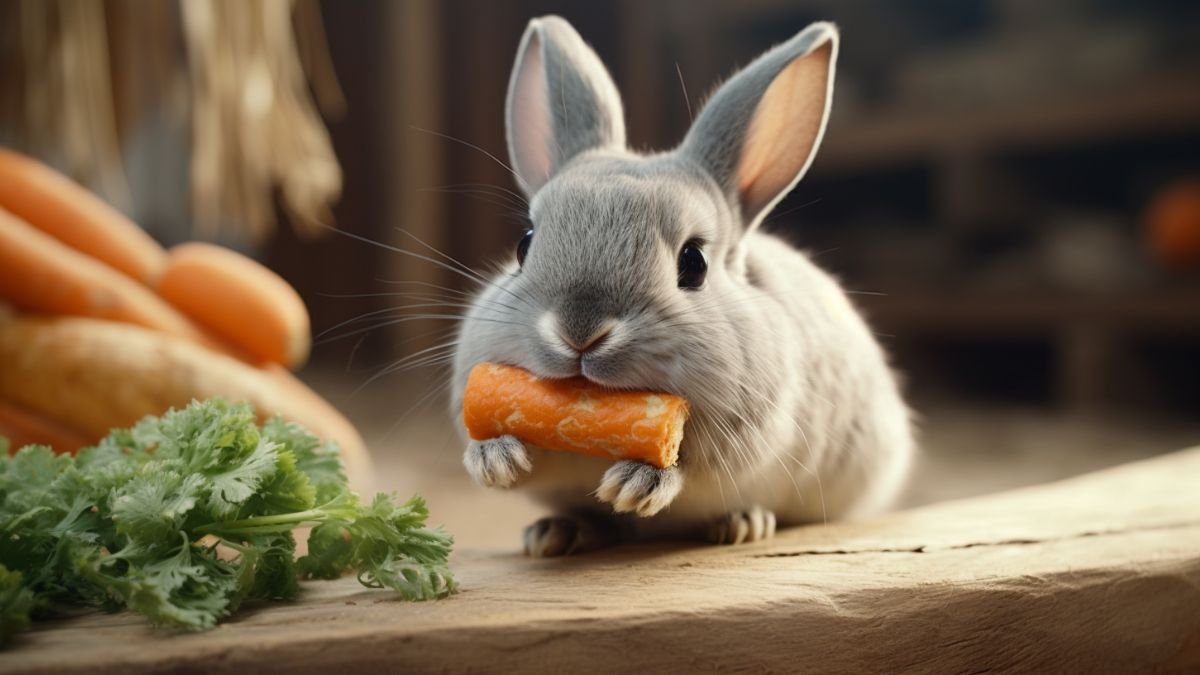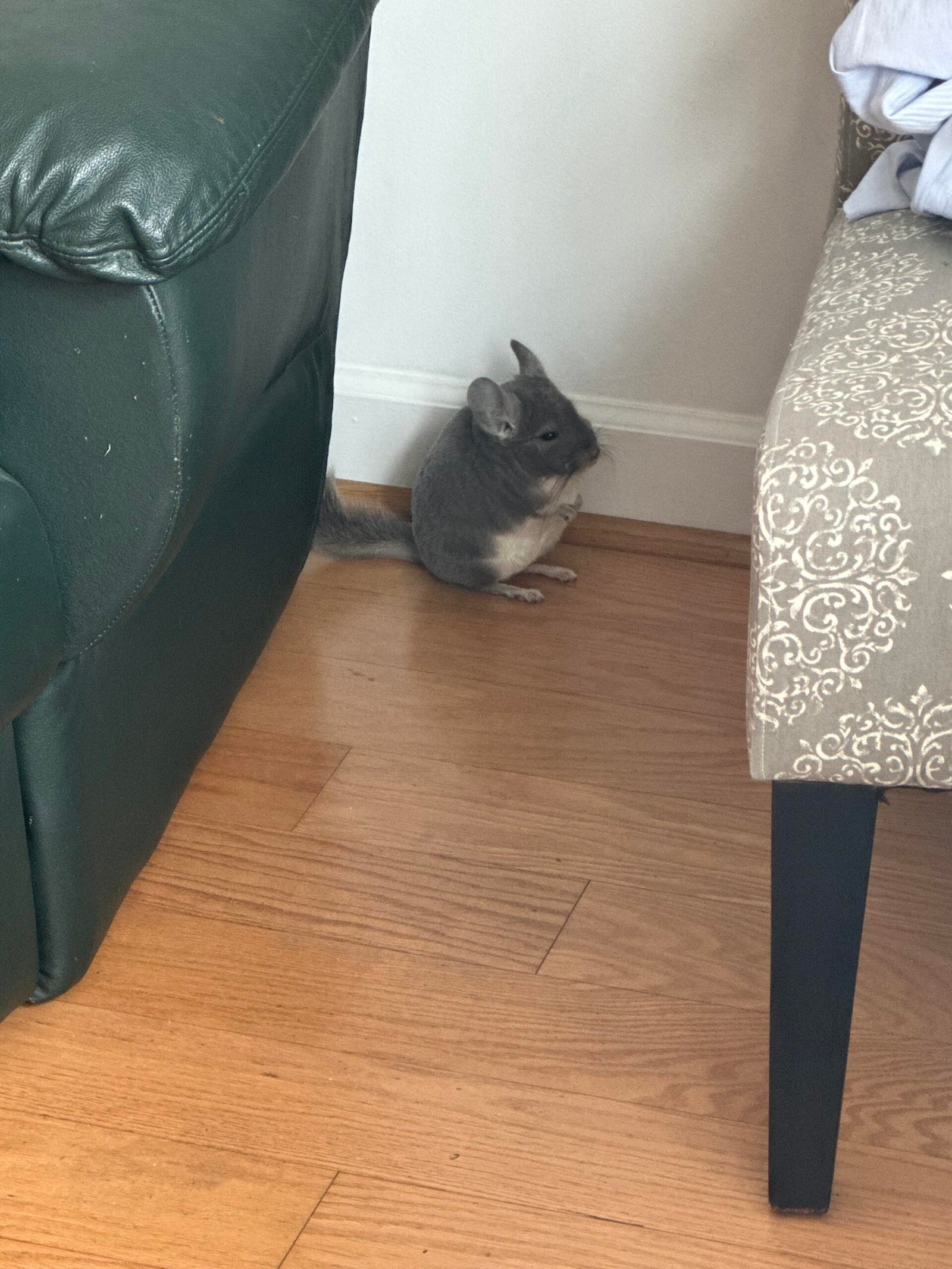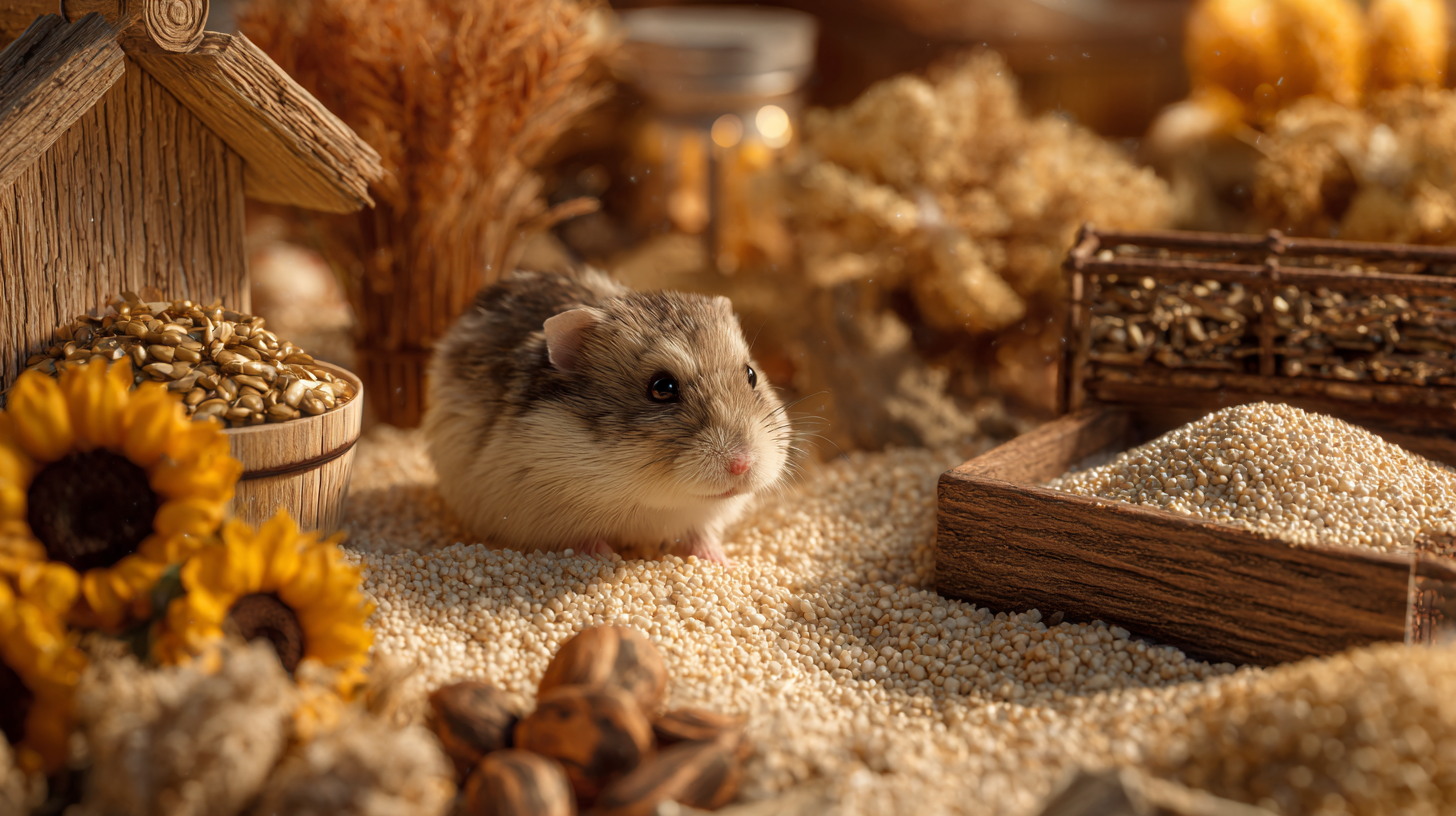
Getting a chinchilla is exciting, but it can also be tricky if you’re new to owning one. You might think you’re doing everything right, but small mistakes can cause big problems for your furry friend.
Are you sure you know what your chinchilla really needs? If you want to avoid common pitfalls that many new owners face, keep reading. This article will help you protect your pet and enjoy a happy, healthy relationship with your chinchilla.
Don’t let simple errors spoil the experience—you owe it to your chinchilla to get it right from the start.
Choosing The Wrong Cage
Choosing the wrong cage is a common mistake new chinchilla owners make. The cage affects your pet’s health and happiness. A bad cage can cause stress, injuries, and even illness. Picking the right cage is key to a happy chinchilla.
Many beginners buy cages that are too small or made of unsafe materials. Chinchillas need space to jump and run. They also need strong bars and safe flooring. Understanding cage needs helps avoid costly errors.
Choosing Cages That Are Too Small
Small cages limit your chinchilla’s movement. Chinchillas are active animals. They need room to jump and climb. A cramped cage causes boredom and health problems. Always pick a cage with multiple levels and wide space.
Using Cages With Unsafe Flooring
Wire floors can hurt chinchilla feet. They may cause sores or injuries. Solid floors with bedding are much safer. Soft, dust-free bedding keeps feet healthy. Avoid cages with only wire mesh floors.
Choosing Cages Made Of Harmful Materials
Some cages have paint or coatings that are toxic. Chinchillas chew their cage bars often. Toxic materials can poison them. Choose cages made of non-toxic metal or powder-coated bars. Avoid plastic parts that chinchillas can chew.
Ignoring Proper Ventilation
Good airflow prevents heat and moisture buildup. Poor ventilation causes respiratory problems. Wire cages provide better airflow than glass tanks. Ensure your cage has enough openings for fresh air.

Improper Diet Choices
Choosing the right diet is crucial for a chinchilla’s health. Many new owners do not know what foods are safe. This leads to health problems and discomfort for their pets. Chinchillas have sensitive stomachs and need a specific diet. Understanding their dietary needs helps avoid common mistakes.
Feeding Too Many Treats
Treats should be given very sparingly. New owners often overfeed sugary or fatty treats. This can cause obesity and digestive issues in chinchillas. Stick to small amounts of safe treats like plain dried rose hips.
Offering Fresh Fruits And Vegetables
Fresh fruits and vegetables are not good for chinchillas. Their digestive systems cannot handle moisture and sugars in these foods. Feeding such items causes diarrhea and stomach pain. Avoid giving any fresh produce to your chinchilla.
Using Improper Pellets
Not all pellets are suitable for chinchillas. Some pellets contain seeds and nuts, which are harmful. Always buy pellets made specifically for chinchillas. These pellets support proper digestion and nutrient absorption.
Ignoring Hay As A Main Food
Hay is essential for chinchillas. It keeps their teeth healthy and aids digestion. Some new owners forget to provide unlimited hay. Always offer fresh, high-quality timothy hay every day.
Neglecting Temperature Needs
Chinchillas are sensitive to heat and need a cool environment. Neglecting their temperature needs can cause serious health problems. These small animals come from cold mountain areas. Their thick fur makes them prone to overheating.
Keeping chinchillas too warm can lead to heatstroke. Heatstroke is dangerous and can be fatal. Many new owners do not realize how important temperature control is. Knowing the right temperature range is key to keeping chinchillas safe and happy.
Ideal Temperature Range For Chinchillas
Chinchillas thrive best between 60 and 70 degrees Fahrenheit. Temperatures above 75 degrees can stress them. Below 50 degrees can also be harmful. Maintaining this range helps chinchillas stay healthy and active.
Signs Of Overheating In Chinchillas
Watch for signs like heavy breathing or drooling. Lethargy and weakness are also common. Fast breathing or lying on cool surfaces shows distress. Immediate action is needed if you see these signs.
How To Keep Your Chinchilla Cool
Use fans or air conditioning to cool the room. Avoid placing cages in direct sunlight. Provide cool, shaded spots inside the cage. Avoid using ice or cold water directly on chinchillas.
Common Temperature Mistakes New Owners Make
Leaving cages near heaters or sunny windows is common. Not checking room temperature daily is risky. Using bedding that traps heat can cause problems. Ignoring humidity, which affects heat stress, is another mistake.

Skipping Dust Baths
Many new chinchilla owners skip dust baths, not knowing their importance. Dust baths keep chinchillas clean and healthy. Without them, chinchillas can develop skin problems and dull fur. This section explains why dust baths matter and how to provide them correctly.
Why Dust Baths Are Essential For Chinchillas
Chinchillas cannot take water baths. Their dense fur traps moisture, causing fungus or illness. Dust baths remove oils and dirt from their fur. This helps keep their coat soft and shiny. Regular dust baths also reduce skin irritation.
Common Mistakes When Offering Dust Baths
New owners often give dust baths too rarely. Some do not use the right type of dust. Chinchilla dust must be fine and soft, not sand or dirt. Using wrong dust can hurt their skin or eyes. Dust baths should last about 10 to 15 minutes.
How To Provide A Safe Dust Bath
Use a special dust bath container or a shallow box. Add enough dust for the chinchilla to roll in. Let your chinchilla enjoy the bath in a quiet place. Offer dust baths two to three times per week. Always remove old dust and replace with fresh dust.
Ignoring Social Needs
Chinchillas are social animals. They need company and interaction to stay happy. Ignoring their social needs can cause stress and sadness. Many new owners forget this important fact. They think chinchillas can live happily alone. This is a big mistake. Without social time, chinchillas can become lonely and unhealthy.
Chinchillas enjoy playing and grooming each other. They thrive on attention from their owners or other chinchillas. Meeting these needs is key for their well-being. Owners should plan daily social time. Understanding chinchillas’ social nature helps avoid common problems.
Why Social Interaction Matters
Chinchillas are herd animals. They feel safe in groups. Social interaction helps them feel calm and secure. Without it, they may show signs of anxiety. These include biting, chewing cage bars, or being inactive. Regular social contact keeps them active and happy.
Signs Your Chinchilla Is Lonely
Lonely chinchillas may hide a lot. They might stop eating or grooming themselves. Some become aggressive or overly shy. Watch for changes in behavior or mood. These signs mean your chinchilla needs more social time.
How To Provide Proper Social Time
Spend time daily playing with your chinchilla. Talk gently and offer treats. If possible, consider having two chinchillas. They keep each other company naturally. Create a safe space where they can interact freely. This reduces stress and improves their health.
Using Unsafe Bedding
Bedding is a key part of your chinchilla’s home. Using the wrong bedding causes many problems. It affects their health and comfort. New owners often choose unsafe bedding without knowing the risks.
Chinchillas need soft, dust-free, and absorbent bedding. Some materials look safe but can harm your pet. Avoid bedding that causes allergies or breathing trouble. Picking the right bedding keeps your chinchilla happy and healthy.
Why Avoid Cedar And Pine Bedding
Cedar and pine wood release oils and dust. These can cause lung problems in chinchillas. The strong smell irritates their sensitive noses. Avoid these woods even if they seem natural.
Risks Of Dusty Bedding
Dusty bedding triggers breathing issues. Chinchillas have delicate respiratory systems. Dust can cause sneezing and infections. Always choose low-dust or dust-free bedding options.
Choosing Safe And Comfortable Bedding
Paper-based bedding is soft and safe. It absorbs moisture and controls odor well. Aspen wood bedding is a good alternative. Both keep your chinchilla dry and cozy.
Signs Of Bedding Problems
Watch for sneezing or coughing in your pet. Red or watery eyes can signal irritation. Restlessness may mean discomfort from bedding. Change bedding immediately if you see these signs.
Overhandling Or Stressing
Overhandling or stressing a chinchilla is a common mistake by new owners. Chinchillas are small, delicate animals that do not like too much noise or rough play. They get scared and stressed easily. Stress can harm their health and make them less friendly.
Many new owners want to hold their chinchilla all the time. This can make the animal nervous and tired. Chinchillas need quiet time to feel safe and comfortable. Handling them gently and for short periods is best.
Signs Your Chinchilla Is Stressed
Look for changes in behavior. A stressed chinchilla may hide or stop eating. They might make loud noises or act restless. These signs show they need a break. Paying attention helps prevent health problems.
How To Handle Your Chinchilla Properly
Use slow and calm movements. Support their body well when holding. Avoid squeezing or sudden moves. Let your chinchilla get used to your hands first. Give them time to relax before picking them up.
Creating A Calm Environment
Keep the cage in a quiet area. Avoid loud sounds and bright lights. Provide hiding spots where your chinchilla feels safe. A calm place reduces stress and helps them trust you more.

Missing Regular Health Checks
Many new chinchilla owners skip regular health checks. This mistake can cause serious problems later. Chinchillas hide illness well. Owners may not see signs of sickness early. Regular health checks catch issues before they worsen.
Checking your chinchilla often helps keep it healthy. It also helps you learn what is normal for your pet. This knowledge is useful when something feels off.
Why Regular Health Checks Matter
Chinchillas are delicate animals. Small health problems can grow fast. Regular checks spot weight loss, fur changes, or eye problems. Early detection makes treatment easier and cheaper.
Signs To Watch During Health Checks
Look for changes in eating habits and activity. Check fur for bald spots or mats. Watch for sneezing or runny nose. Notice if your chinchilla is less active or hiding more.
How Often To Perform Health Checks
Check your chinchilla at least once a week. Use a gentle touch and calm voice. If you notice anything unusual, see a vet soon. Regular checks build a strong bond with your pet.
What To Do If You Spot A Problem
Do not delay if you see warning signs. Find a vet who knows chinchillas. Describe symptoms clearly. Early care can prevent serious illness or death.
Failing To Provide Enrichment
Chinchillas need more than food and water to thrive. They require mental and physical stimulation every day. Failing to provide enrichment can lead to boredom and stress. These problems affect their health and happiness.
Enrichment keeps chinchillas active and curious. It mimics their natural environment and behaviors. Without it, chinchillas may become restless or develop bad habits.
Understanding Chinchilla Natural Behavior
Chinchillas are active animals. They love to jump, climb, and chew. Their wild ancestors explore rocky areas and burrows. Providing activities that match these actions helps them feel safe and happy.
Types Of Enrichment For Chinchillas
Offer chew toys made of safe wood or pumice. Add tunnels and shelves for climbing. Rotate toys regularly to keep interest high. Different textures and shapes stimulate their senses.
Signs Your Chinchilla Needs More Enrichment
Look for signs like fur chewing or pacing. A bored chinchilla might hide or become aggressive. Lack of energy or repetitive movements show stress. These signs mean it’s time to add new activities.
How To Create A Fun And Stimulating Environment
Use a large cage with multiple levels. Place toys in different spots to encourage movement. Provide dust baths often for natural grooming. Spend time playing outside the cage safely.
Frequently Asked Questions
What Common Mistakes Do New Chinchilla Owners Make?
Many new owners give wrong food, housing, or ignore temperature needs.
How Often Should I Clean My Chinchilla’s Cage?
Clean the cage weekly to keep your chinchilla healthy and happy.
Can Chinchillas Eat Regular Pet Food?
No, chinchillas need special hay and pellets, not regular pet food.
Why Is Dust Bathing Important For Chinchillas?
Dust baths keep their fur clean and healthy by removing oils and dirt.
What Temperature Is Best For A Chinchilla’s Habitat?
Keep chinchillas cool; ideal temperature is between 60-70°F (15-21°C).
How Much Social Interaction Do Chinchillas Need?
Chinchillas need gentle daily interaction but also enjoy quiet alone time.
Is It Okay To Handle Chinchillas Roughly?
No, chinchillas are delicate and need gentle, careful handling to avoid stress.
What Signs Show A Chinchilla Is Stressed Or Sick?
Look for changes in eating, behavior, fur condition, or unusual droppings.
Conclusion
Taking care of a chinchilla needs patience and care. Avoid common mistakes to keep them happy and healthy. Learn about their diet, habitat, and handling. Small changes make a big difference in their life. Enjoy the bond you build with your chinchilla.
Remember, every pet is unique and needs love. Keep learning and give your chinchilla the best care possible. Simple steps lead to a joyful pet experience.

